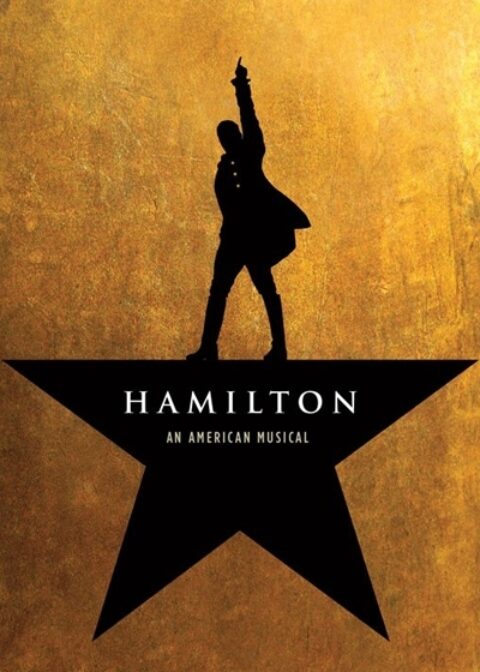Shubert Organization Is Set To Implement Blockchain Technology On Broadway Ticket Sales In An Effort To Increase Profits And Thwart Secondary Ticket Brokers
Blockchain Technology For Broadway Tickets
In early October, 2019, the largest theatre landlord on Broadway, The Shubert Organization, announced a pilot program to sell Broadway tickets using ‘blockchain technology’ on their website telecharge.com. The Shubert’s want to use the blockchain technology on their ticket selling platform, as a way to track Broadway show tickets and get more data about their customer base.
The announcement comes as a surprise to most Broadway types who typically think of Broadway, and particularly The Shubert Organization, as an old and crusty organization that cannot embrace new ideas.
‘True Tickets’ Partnered To Develop Solution
The Shubert Organization partnered with the Boston-based ticket blockchain startup ‘True Tickets’, to handle their blockchain tickets test run. The blockchain pilot was postponed due to the unforeseen Broadway shutdown that corresponded to the COVID-19 pandemic and took NYC by storm, but the test has been rescheduled for a later date. The delay may have actually come at an opportune time and will allow the well known Broadway theatre landlord time to develop the idea during the Broadway downtime.
There still may be many kinks in the system which must be worked out before blockchain technology makes its official debut on Broadway. It is speculated that the Shubert Organization wants to implement blockchain technology on their Broadway show tickets for a number of reasons, but primarily to attempt to marginalize secondary market ticket brokers.
What is Blockchain Technology?
Blockchain is essentially a data ledger, that can keep track of everything and anything that happens to a virtual chunk of data. The blocks are associated together using cryptography. Blockchain is commonly associated with the crypto currency Bitcoin, which is an erratically traded virtual internet currency. Bitcoin uses another form of blockchain as its backbone, but the fundamental design of blockchain can be used for any application.
It is called blockchain because there are two appropriately named elements to it. The first is a virtual ‘block’ that can store data. The ‘blocks’ can store all sorts of data and examples of the fields for Broadway tickets can be: time, date, seat, location, event, names, or even specific data such as the client’s favorite drink.
The second part of blockchain, is the ‘chain’. The ‘chain’ is what links the data ‘blocks’ together in a chronological order through a cryptographic algorithm. Blockchains are run on decentralized networks that are made up of many public computers. The idea to implement blockchain technology on Broadway show tickets is to allow tickets to store various parts of information that can be used for security, marketing and logistical purposes.
Some more data that can be stored in a Broadway ticket blockchain is current buyer’s name, past buyer’s name(s), age, race, original ticket price and final ticket price. Broadway show tickets often go through a number of people’s possession. before getting into hands of the actual Broadway show attendee. This technology would be able to track the ticket flow and provide a trail about where the ticket has been and how much the ticket was sold for at each stage.
Why The Shubert Organization Wants to Use Blockchain for Their Tickets
The Shubert Organization has a few reasons to use blockchain for their Broadway tickets, but many of them point to more profit for themselves. Blockchain will help the theatre landlord make more money, in two different ways.
The first way is that it may help to eliminate the secondary market ticket brokers. For a ticket to be used electronically, the blockchain would have to be updated. This data would ultimately give The Shubert Organization proprietary data about the true value of Broadway tickets and how many are resold after it initially sold the ticket.
The problem with this is that the brokers would not want to put any data into the blockchain, as it provides them with no benefit. They would not want to share the original price they paid for the tickets with their own clients. Additionally, they would also not want to add to the blockchain what they actually sold the tickets for, essentially divulging what price markup they were able to garner. This data would then allow Shubert to adjust their own prices to true market value and cut out the ticket brokers profit and essentially bankrupting them.
Shubert Has Another Way To Benefit
The second way the Shubert’s would profit from blockchain, is from the data that they would collect. They could use the data to market directly to those customers or similar customers again, cutting out the middleman.
Using blockchain for Broadway show tickets also eradicates the fake ticket market, as some estimates indicate that 12% of concert tickets are in fact fake. Research shows that this rarely happens on Broadway and may just be part of the trojan horse. Using the 'fake tickets' excuse may allow The Shubert Organization to sneak in this technology under the guise of 'security', but in all likelihood The Shubert Organization has a hidden agenda. That agenda may be to just increase their bottom line by destroying the Broadway ticket broker market and owning all ticket and customer data.
What Data in Blockchain Would Help The Shubert Organization
The Telecharge ticket service would be able to keep track of the following blockchain fields:
- Original ticket price, show location, date and time
- Who has bought the tickets and at what price
- Subsequent ticket sale prices and buyers details
- Previous transactions including buyer information and sale price
- Whether or not the buyer actually attended the show or was a no-show
- Fingerprints and/or picture of the ticket owner (and past owners) to identify theatregoers at the theatre entrance via facial recognition
- Data about the current owner including: age, race, height, sex and Broadway ticket purchase history
Privacy advocates may have issues with some of this data finding its way into the Broadway ticket blockchain being put together by The Shubert organization for their Telecharge service.
Why The Broadway Ticket Blockchain May Not Work As Anticipated
- Following an internal review, the other primary Broadway ticket vendor, Ticketmaster, is not planning to use blockchain technology. However, Ticketmaster is looking into it for NFL tickets, where the amount of fake tickets is extremely high
- Ticket buyers may not want their data stored in the blockchain, but will be forced to do so
- The blockchain may be vulnerable to attack and subsequent confidential data loss
- The Shubert Organization already has a poor track record with technology. Their existing Telecharge.com website is good example of bad design, unreliability and poor workflow
- Secondary ticket brokers will not engage with this technology as they see the writing on the wall that will ultimately push them out of the market
- Eliminating ticket brokers would actually raise the original price of Broadway tickets
- The secondary ticket market brokers often drive Broadway ticket sales. Without them a good piece of the total marketing effort is gone. This may ultimately lead to loss of demand for Broadway tickets
Unintended Consequences of The Blockchain
It appears that as part of the blockchain initiative, The Shubert Organization is intent on getting secondary market ticket sales numbers. This will allow them to adjust their own base ticket pricing, which would provide them with better profit yields. In this bid to eliminate secondary market ticket brokers, The Shubert Organization may in fact unwittingly destroy the only source of the true value ticket market data.
When ticket brokers are eliminated, the Shubert Organization will then be stuck going back to trying to price tickets all by themselves again. This is an area that the Shubert Organization has failed to deliver on in the past and it could be anticipated that they would find the same problem.
Bad Year For The Shubert Organization
The past year for The Shubert Organization has been a miserable one, with a number of disasters not connected to COVID-19. They recently had a data breach where customers data was accessed by a third party, and this was indicative of overall institutional neglect. Ticket buyers information was compromised for Broadway tickets that were purchased through many of its divisions and affiliates.
The Shubert divisions include Telecharge, TicketMonster, TicketsAtWork, Plum Benefits, Working Advantage and Beneplace. Reports indicate that ticket buyers names and credit card information were accessed and/or compromised by third parties. The Shubert Organization continues to lack many security controls and even the Shubert.nyc website lacks an SSL certificate, which is the truly the lowest rung of internet security available and puts website users at risk.
Conclusion
For The Shubert Organization to consider blockchain technologies at a time when they cannot even deliver the most basic of ticket services in a secure and reliable way, may be ill-advised at best, but unabridged arrogance at worst.


